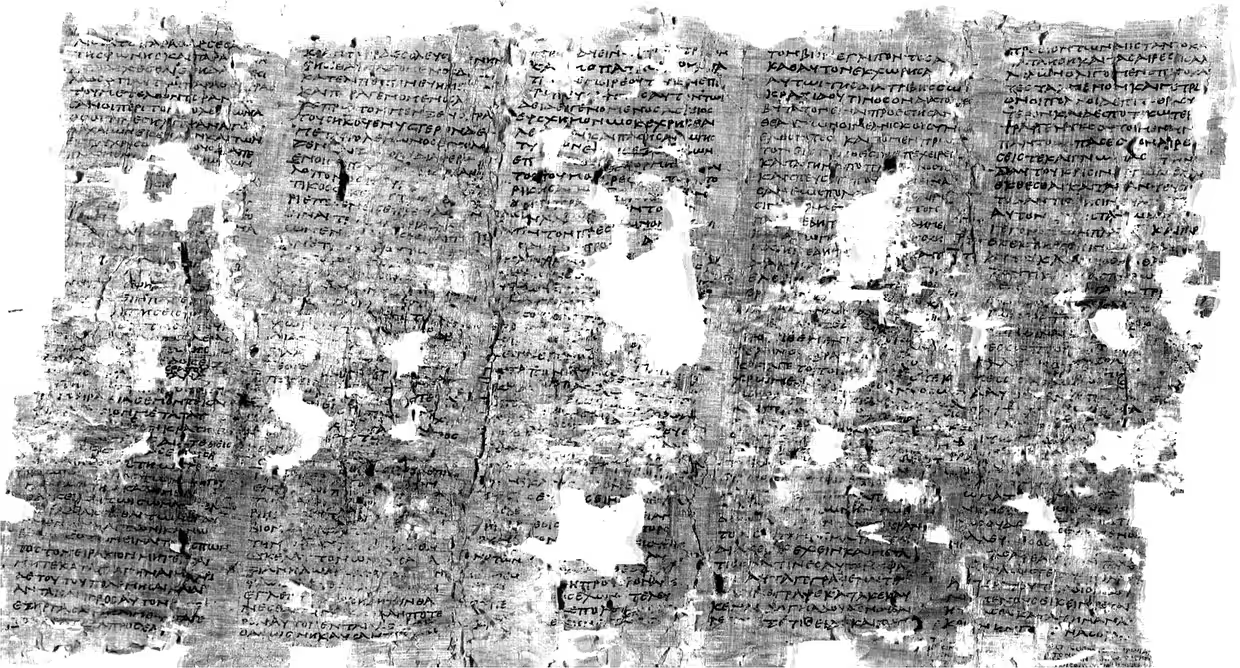Even should you can title just one historical Greek, you’ll be able to title Plato. It’s also possible to probably say a minimum of a little about him, if solely among the issues humanity has recognized since antiquity. Till latestly, after all, that qualification would have been redundant. However now, due to an ongoing high-tech push to learn heretofore inaccessible historical documents, we’re witnessing the emergence of latest knowledge about that almost all well-known of all Greek philosophers — or a minimum of one of the vital well-known Greek philosophers, matched in renown solely by his trainer Socrates and his student Aristotle.
Up till now, we’ve solely had a general concept of the place Plato was interred after his demise in 348 BC. However “due to an historical textual content and specialized scanning technology,” writes Smithsonian.com’s Sonja Anderson, “researchers say they’ve solved the mystery of Plato’s burial place: The Greek philosopher was interred within the garden of his Athens academy, the place he as soon as tutored a younger Aristotle.” This location was fileed about two millennia in the past “on a papyrus scroll housed within the Roman metropolis of Herculaneum,” which was entombed together with Pompeii by the explosion of Mount Vesuvius in 79 AD.
Like a lot else in these cities, this scroll was preserved for centuries underneath layers of ash. It was simply one among many scrolls discovered in a villa, which can have belonged to Julius Caesar’s father-in-law, again in 1750. However for lengthy thereafter, these scrolls have been kind of unreadready, having been so thoroughly charred by the explosion of Mount Vesuvius that they crumbled to mud at any try to unroll them. However “latest breakthroughs have allowed researchers to learn the fragile texts without contacting them”: witness the initiatives involving particle accelerators and artificial intelligence previously featured right here on Open Culture.


The analysis venture that has deciphered a part of this scroll, a textual content by the philosopher Philodemus referred to as the History of the Academy — that’s, Plato’s academy in Athens — is led by University of Pisa professionalfessor of papyrology Graziano Ranocchia. Utilizing a “bionic eye” technique involving infrared and X‑ray scanners, he and his workforce have additionally discovered evidence that Plato didn’t very like the music performed at his deathbed by a Thracian slave woman. “Regardless of battling a fever and being getting ready to demise,” writes the Guardian’s Lorenzo Tondo, he “retained sufficient lucidity to critique the musician for her lack of rhythm.” Even when you recognize little about Plato, you’re probably not surprised to listen to that he was leveling out the difference between the actual and the ideal up till the very finish.
by way of Smithsonian Magazine
Related content:
Researchers Use AI to Decode the First Phrase on an Historical Scroll Burned by Vesuvius
Orson Welles Narcharges an Animation of Plato’s Cave Allegory
Plato’s Dialogue Gorgias Will get Adapted right into a Brief Avant-Garde Movie
How 99% of Historical Literature Was Misplaced
Primarily based in Seoul, Colin Marshall writes and broadcasts on cities, language, and culture. His initiatives embrace the Substack newsletter Books on Cities, the guide The Statemuch less Metropolis: a Stroll via Twenty first-Century Los Angeles and the video sequence The Metropolis in Cinema. Follow him on Twitter at @colinmarshall or on Faceguide.
